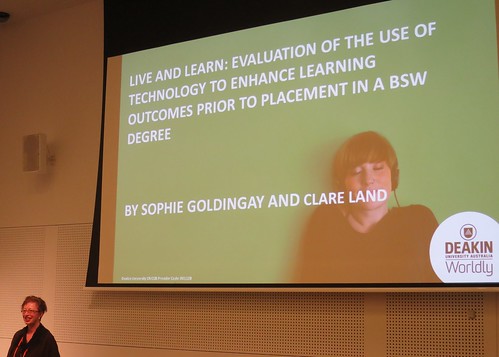Paper presented at #husITa14 in Melbourne, Australia, July, 2014.
Presenter
Sophie Goldingay (Deakin University, Australia).
Abstract
Higher education is known to enhance economic prosperity and hence overall social inclusion and wellbeing for those who graduate. Enabling wide participation in higher education is one route to sustainable social and economic equality. Technology has enormous potential to bring higher educational opportunities to capable students who otherwise might not access it, due to remote or rural location, disability(s), paid work and/or caring responsibilities. Technology can now enable students to learn and interact with fellow students and teaching staff online, irrespective of their location.
Nevertheless, there has been some skepticism about the efficacy of online teaching methods to prepare students for industry (Mather, 2013). Thus, this project employed mixed methods to survey off-campus social work students and field educators, whose students only studied social work off-campus in the first two years prior to placement in 2013, to evaluate the perceived level of preparedness for first social work field placement.
Preliminary analysis of student data indicates that students perceived online learning as having opportunity-related and pedagogical advantages. While some disadvantages were cited, they were ones that could be addressed by teaching staff. Overall, most students found online learning very or extremely useful. Similarly, preliminary analysis of field educator data showed a high level of satisfaction with the level of preparedness for field placement of off campus students, even when comparing for differences in age, life experience and cultural background. Ideas for further meeting student social and learning needs in the online environment, while continuing to make university social work training relevant to the field, will be discussed.
Powerpoint
[slideshare id=36933232&doc=fri2171530sophiegoldingay-140713183643-phpapp01]
Back to programme

